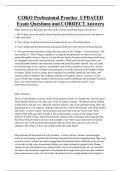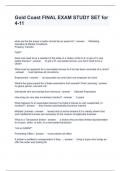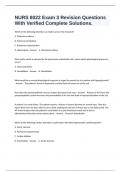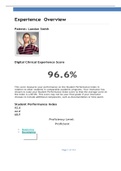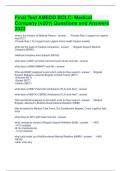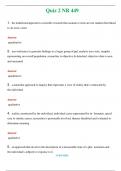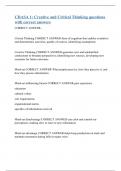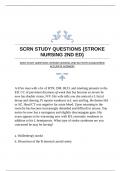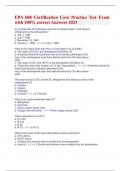Exam (elaborations)
COKO Professional Practice UPDATED Exam Questions and CORRECT Answers
- Course
- Institution
COKO Professional Practice UPDATED Exam Questions and CORRECT Answers What sentence best describes the roles of the College and professional associations? i. The College serves the public interest and the professional associations serve the interests of the profession. ii. The College and th...
[Show more]
